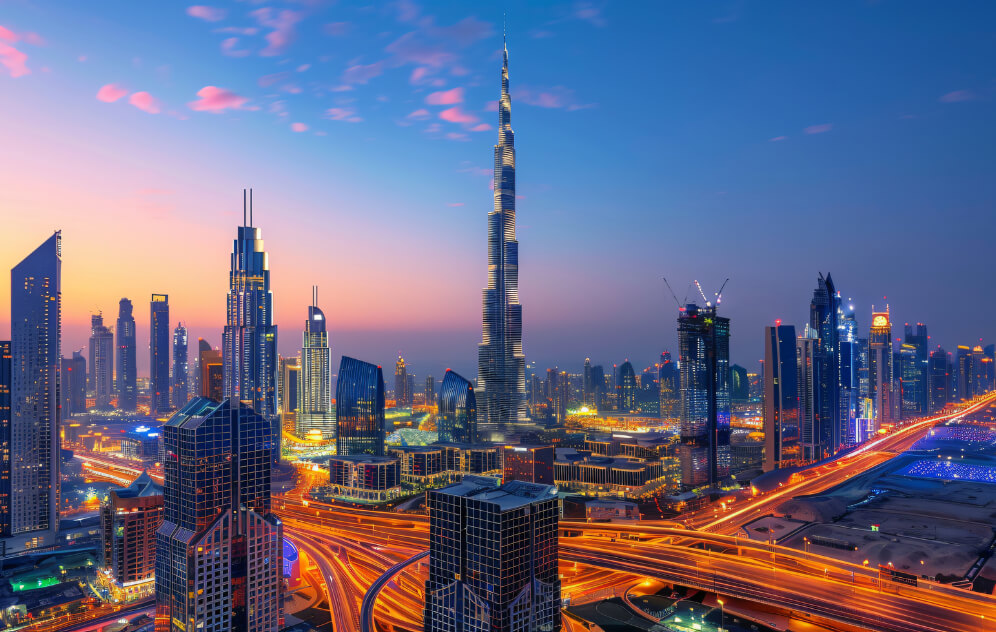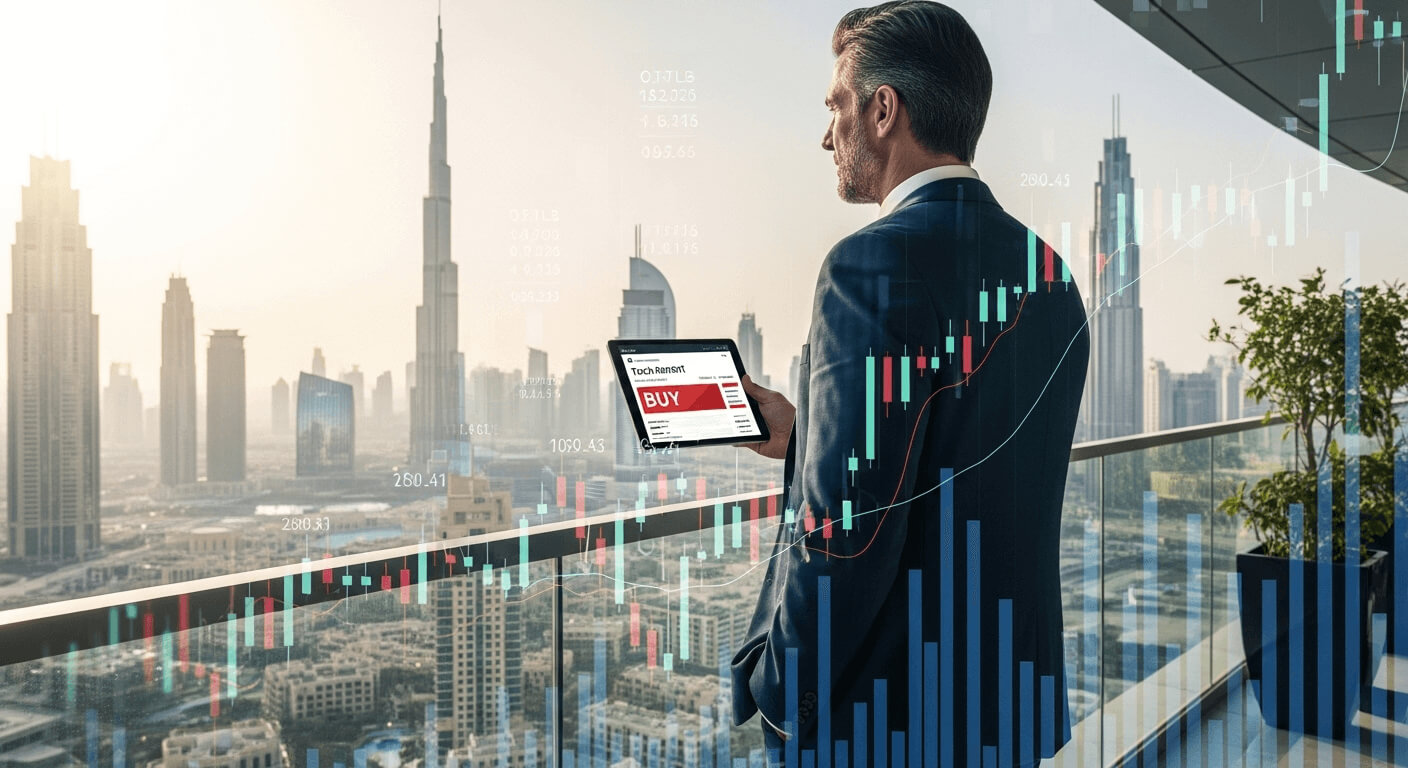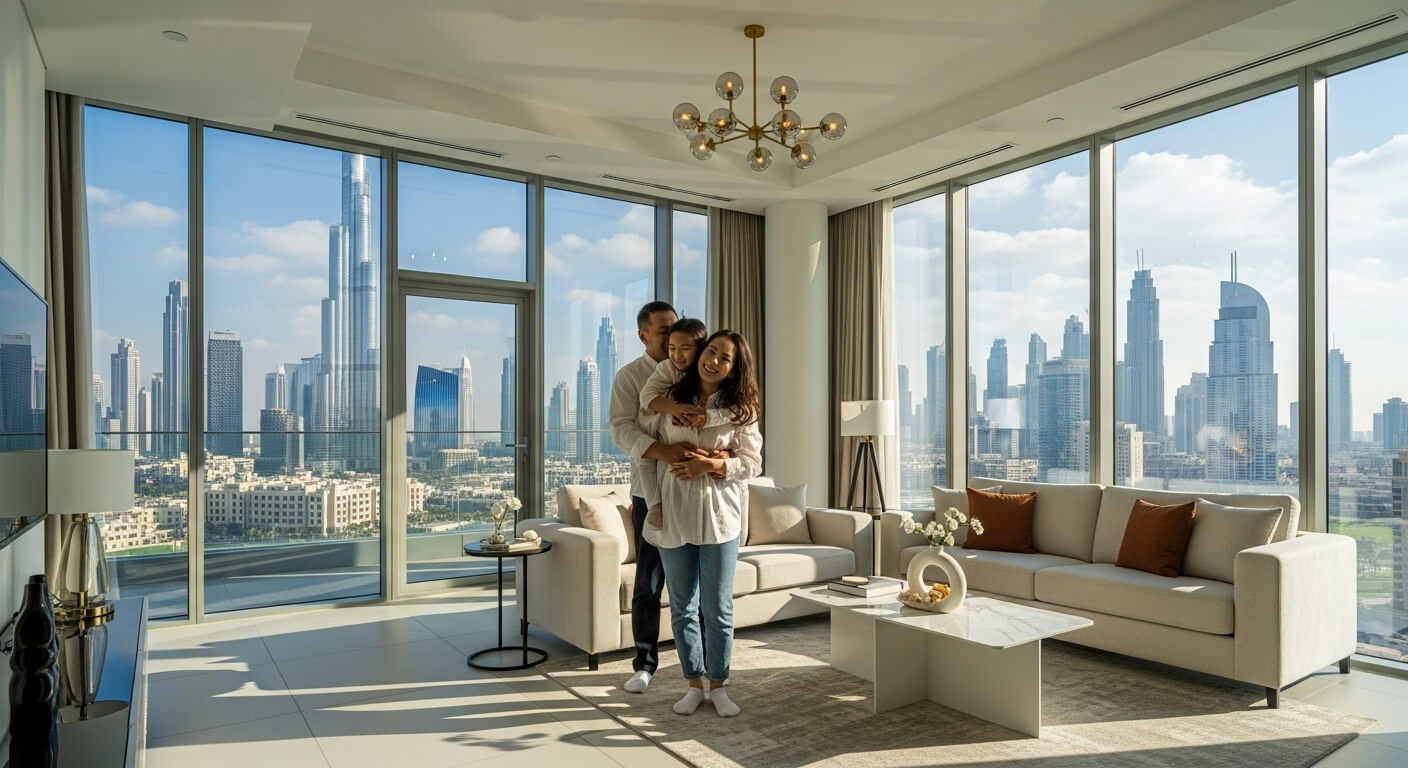
Dubai’s property market remains resilient amid global economic shifts. Key trends like rising interest rates, oil prices, and currency fluctuations influence investor behavior—but Dubai’s strategic policies, tax-free benefits, and high ROI continue to attract global buyers seeking stability.
Global headlines may shout uncertainty, but Dubai real estate continues to quietly boom. While economies worldwide wrestle with inflation, rising interest rates, and shifting currency dynamics, Dubai stands out as a resilient, investor-friendly hub. This blog unpacks how global economic trends influence Dubai’s property market—and why smart buyers still view it as a safe haven for long-term growth.
Central banks globally have hiked rates to curb inflation. This affects mortgage affordability, slows down speculative demand, and creates caution among buyers. However, Dubai’s cash-driven market is relatively insulated. Many buyers prefer off-plan purchases with flexible payment plans—reducing reliance on traditional financing.
Strong currencies (like USD, EUR, GBP) increase the purchasing power of foreign investors. Since the AED is pegged to the US dollar, European and Asian investors benefit when their home currency strengthens. This trend has boosted sales from overseas buyers looking to hedge against local market volatility.
Higher oil prices support Gulf economies, boosting government spending on infrastructure, transport, and tourism. These developments directly impact real estate appreciation, particularly in emerging districts like Dubailand and Dubai South.
Dubai has weathered multiple global slowdowns—from the 2008 financial crash to the 2020 pandemic. Strategic government policies such as long-term visas, 100% foreign ownership, and zero property tax have turned real estate into a magnet for global capital.
Global uncertainty has shifted buyer focus from speculative flipping to end-user value. Boutique communities like Mayfair Nexus are now more appealing due to their emphasis on community, wellness, and location.
Despite global caution, off-plan property sales remain strong. Developers offer extended payment plans and post-handover options, attracting buyers who want affordability with long-term gain.

Dubai offers:
These factors de-risk international property investments, especially during global downturns.
Dubai continues to offer net rental yields of 5–7%, outperforming major cities like London or New York. Investor demand is high in well-connected areas such as Dubailand, JVC, and Arjan.
Unlike some global markets, Dubai allows 100% property ownership in designated freehold zones. This is a key attractor for European and Asian buyers.
Conclusion: Off-plan works best for buyers with long-term vision and cash flexibility; ready units suit rental-focused investors.
These areas combine affordability, strong infrastructure, and consistent demand—ideal for riding out global turbulence.

Dubai real estate may not be immune to global economic forces, but it is incredibly well-shielded. With strategic government support, high rental yields, and continued foreign interest, it remains a compelling investment. Whether you’re considering off-plan flexibility or ready-to-move stability, location and timing are everything.
Ready to explore smart property options in Dubai?
Book a viewing at Mayfair Nexus.
Q1: How does the global economy affect Dubai’s real estate market?
Global factors like interest rate hikes, inflation, oil prices, and currency shifts impact investor confidence and demand in Dubai. However, thanks to zero capital gains tax, stable governance, and high rental yields, Dubai property continues to attract foreign investors seeking long-term growth.
Q2: Is Dubai real estate a good investment during global uncertainty?
Dubai offers one of the most secure property markets globally with tax-free returns, full foreign ownership in freehold zones, and government incentives like the Golden Visa. These make it ideal for investors during economic downturns.
Q3: Which Dubai locations are best for property investment now?
Top investment hotspots include:
These areas offer growth potential and steady rental income.
Q4: Should I buy off-plan or ready property in Dubai right now?
Buyers focused on long-term ROI often prefer off-plan for flexible payment plans and capital appreciation. Ready properties are ideal for those seeking immediate rental returns or moving in soon. Your choice depends on liquidity, timeline, and risk appetite.
Q5: Why are foreign investors buying Dubai property in 2024 and beyond?
Reasons include:
Dubai’s market stability and lifestyle benefits make it a top choice globally.
Q6: Can global interest rate changes impact property prices in Dubai?
Yes, but with limited effect. Dubai’s market is largely driven by cash buyers and off-plan purchases with flexible developer plans, reducing mortgage dependency. Still, higher global rates can temper investor sentiment temporarily.
Q7: What makes Dubai’s off-plan projects attractive to global investors?
Off-plan properties offer:
This flexibility is ideal for buyers hedging against volatile global markets.
Q8: Are real estate prices in Dubai likely to rise due to global trends?
Yes, in the medium-to-long term. As global capital seeks safe, tax-efficient investments, Dubai benefits from strong inflows. Strategic projects like Dubai Vision 2040 and infrastructure upgrades further support price appreciation.